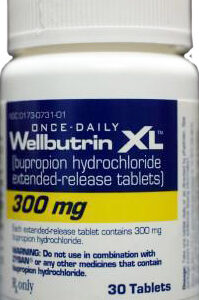Zyban Medication Overview
Zyban, clinically known as bupropion hydrochloride, is a medication primarily prescribed to aid in smoking cessation. It works by affecting the balance of neurotransmitters in the brain, thus reducing withdrawal effects and the urge to smoke.
Pharmacological Class
Zyban belongs to the class of medications known as antidepressants; specifically, it’s classified as a norepinephrine-dopamine reuptake inhibitor (NDRI).
Active Ingredient and Strengths
The active ingredient in Zyban is bupropion hydrochloride. Zyban is typically available in sustained-release tablets of 150 mg strength.
Indications for Use
Zyban is approved for use as an aid in smoking cessation treatment. It can also be used for other conditions as determined by a healthcare provider.
Dosage and Administration
Initially, Zyban is prescribed at 150 mg once daily for the first three days. After that, the dosage is usually increased to 150 mg twice daily. The doses should be taken at least 8 hours apart, and not right before bedtime to minimize the risk of insomnia.
Treatment Duration
For smoking cessation, treatment with Zyban should begin while the patient is still smoking, because it takes about one week for bupropion to reach adequate levels in the body. It is recommended that patients set a “target quit date” within the first two weeks of treatment.
Mode of Action
Zyban’s mode of action in smoking cessation is not completely understood but is believed to be related to its inhibition of the reuptake of dopamine and norepinephrine.
Contraindications and Precautions
Zyban is contraindicated in individuals with a known allergy to bupropion, a current or prior diagnosis of bulimia or anorexia nervosa, undergoing abrupt discontinuation of alcohol, benzodiazepines, barbiturates, and antiepileptic drugs, or patients who have taken a monoamine oxidase inhibitor (MAOI) within the last 14 days.
Drug Interactions
Zyban can interact with various drugs, including MAOIs, other forms of bupropion, drugs that lower the seizure threshold, and certain dopaminergic drugs. Exercise caution when used concomitantly with medications that are metabolized by CYP2D6.
Adverse Reactions
Potential adverse reactions to Zyban include dry mouth, insomnia, headache, nausea, vomiting, constipation, and seizures. Some individuals may experience neuropsychiatric symptoms such as agitation, depressed mood, or suicidal thoughts.
Monitoring Parameters
When a patient is on Zyban, monitoring should include assessment for psychiatric symptoms, blood pressure, and any seizure activity. It’s important to regularly review the patient’s smoking status.
Overdose Management
In case of suspected overdose, the patient should seek immediate medical attention. Symptoms of an overdose can include hallucinations, loss of consciousness, rapid heartbeat, and seizures. Provide supportive care and possibly activated charcoal if within the appropriate time frame post-ingestion.
Storage Requirements
Zyban tablets should be stored at room temperature, away from light and moisture, and kept out of reach of children and pets.
Dispensing Instructions
Dispense Zyban in its original container and advise the patient to read the medication guide provided with the prescription.
Patient Counseling Information
Counsel patients on the proper use of Zyban, including adherence to prescribed dosage and administration times. Warn against the use of Zyban in conjunction with any nicotine replacement therapies unless directed by a physician. Also, inform patients to promptly report any mood changes or unusual symptoms to their healthcare provider.



Reviews
There are no reviews yet.